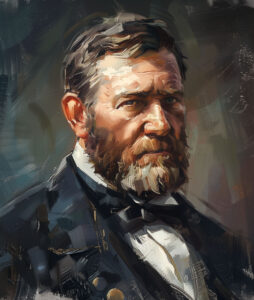Lincoln on Race & Slavery
Edited by Henry Louis Gates Jr. and Donald Yacovone, Princeton, 343 pp., $24.95
Looking For Lincoln
Hosted by Henry Louis Gates Jr. with Doris Kearns Goodwin, PBS, DVD 120 mins., $24.99
One hundred years ago, the 16th president’s stature as a secular saint was pretty much taken for granted, especially among African Americans. But the civil rights movement that, many believe, finished what Lincoln started, has also made African Americans, who were once his most devoted acolytes, turn a more gimlet eye toward the Great Emancipator. And so, in the year celebrating the bicentennial of Lincoln’s birth, questions abound: If Lincoln really hated slavery, why did it take so long for him to declare emancipation? And is it possible that he didn’t love black people as much as they loved him? After all, he kept insisting that once slaves were freed, he’d prefer to have them all shipped back to Africa rather than given the same rights as all American citizens. Or did he?
You can get whiplash sifting for answers in Lincoln’s letters, speeches and official documents. So Henry Louis Gates Jr. does the work for you with Lincoln on Race & Slavery, using excerpts dating back to Lincoln’s earliest antislavery statements as an Illinois legislator in the late 1830s to his last address on April 11, 1865, in which he said black Union troops proved they were worthy of the vote—which sealed John Wilkes Booth’s deadly plot.
Assembling passages with a surgeon’s deftness, Gates (with help from editor-writer Donald Yacavone) fashions a simulacrum of a state of mind in constant war with its assumptions and ambitions. To read the segments gleaned from the epochal 1858 Lincoln-Douglas debates, you’d think Lincoln spent most of his time reassuring his white audiences that, of course, he didn’t believe blacks were sufficiently human to mix with their kind; at the same time, he kept insisting that the Declaration of Independence’s bold assertion that “all men are created equal” applied to black men as well.
In the PBS documentary Looking for Lincoln, now on DVD, Gates explores Abraham Lincoln as both man and legend. Unfortunately, the film is more travelogue than analysis. Gates lugs Lincoln’s complexities and contradictions into encounters with scholars, tour guides, schoolchildren and even some present-day Stars and Bars sympathizers. Although the nation’s “goto” black public intellectual making nice with proud sons and daughters of the Confederacy is interesting television, it also is symptomatic of the film’s intermittently provocative drift, and the reason it does not answer the above (or related) questions.
Despite Lincoln’s undeniable inconsistencies, his genius becomes more tangible when we see him force his listeners to confront not only “the better angels of our nature” but the darker forces within. For example, in his 1858 speech in Edwardsville, Ill., he dares to ask whites about dehumanizing and subjugating blacks: “Are you quite sure the demon which you have roused will not turn and rend you?” Skeptics of all colors are free to doubt whether Lincoln still belongs to the ages. But when you see how such a question may still be posed in your own life and times, you’re hard-pressed to deny lasting resonance to such fierce and mighty words.
Originally published in the August 2009 issue of American History. To subscribe, click here.




